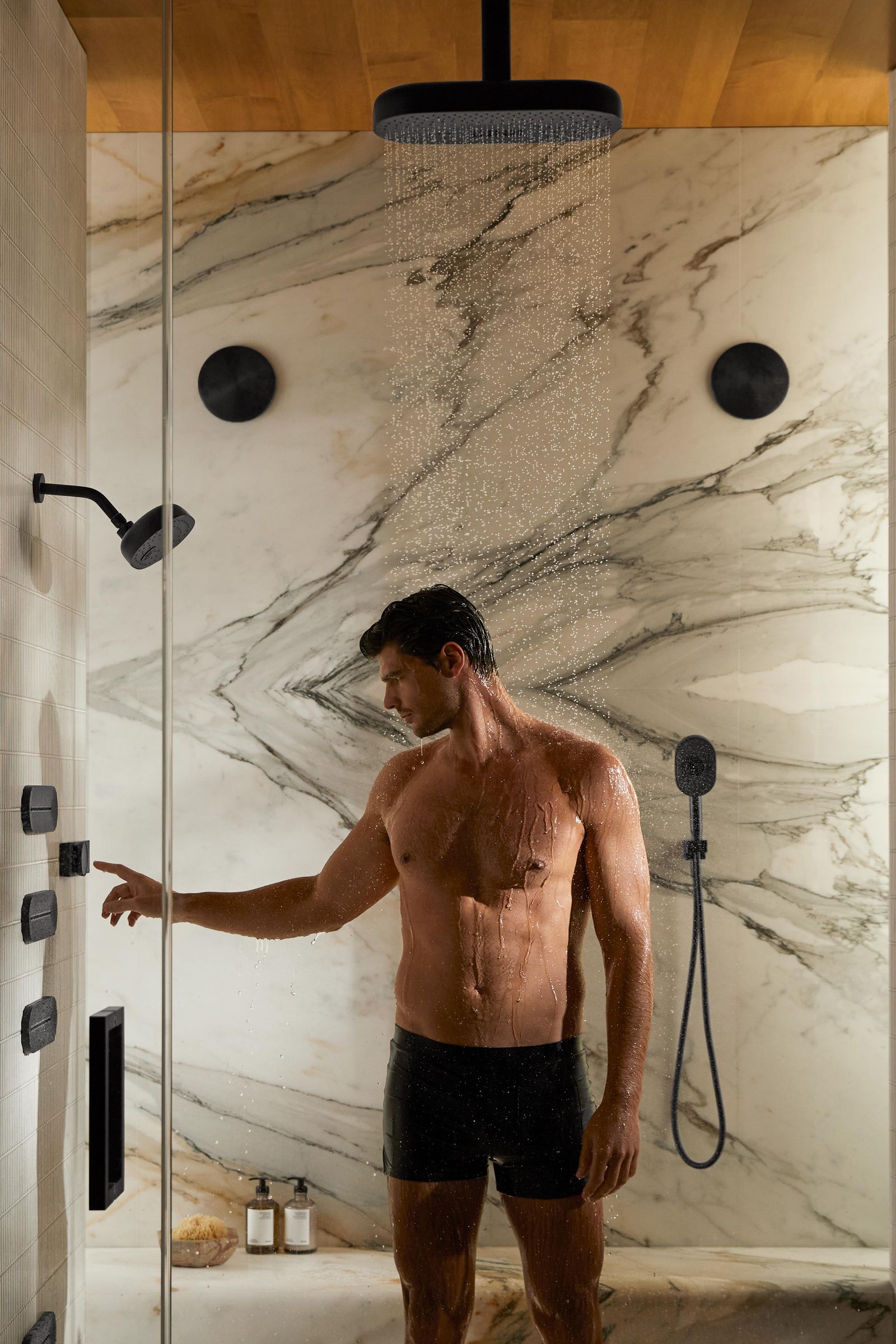The Art of Meditation in the Bath: How Water Can Calm Your Mind

The Healing Power of Water and Meditation
Water has long been celebrated for its healing properties. From ancient baths in Roman times, where citizens gathered in grand thermal baths to relax and socialize, to the soothing spa retreats of today, immersion in water creates a sanctuary for the mind. The restorative effects of water are evident in how it helps to alleviate both physical and mental stress, transforming the bathing experience into a ritual of rejuvenation.
As urban life becomes increasingly hectic and stressful, finding moments of stillness can be a challenge. However, incorporating meditation into your bath can amplify these calming effects. This simple yet profound practice can serve as an antidote to the pressures of modern life. Here are some compelling reasons to explore this transformative activity:
- Reduced Stress: Numerous studies have indicated that water immersion can lower cortisol levels, a hormone linked to stress. When you immerse yourself in warm water, your body typically relaxes, leading to a decrease in muscle tension and a sense of overall calm.
- Enhanced Focus: The rhythmic sounds of water – whether it’s the gentle dripping from a faucet or the soft splash of a bath – can serve as a natural background noise, helping to clear your mind. This auditory experience can enhance your meditation practice, allowing you to focus more intently on your breathing and thoughts.
- Increased Mindfulness: A warm bath creates an inviting atmosphere that encourages mindfulness. The sensation of warm water enveloping you encourages a deeper connection with your senses, allowing you to acknowledge and process your thoughts and emotions without judgment.
Imagine soaking in a warm bath, the water embracing you while you drift into a meditative state. In this tranquil setting, the blend of sensation and focus cultivates a unique atmosphere, harnessing the therapeutic qualities of water and meditation. It’s a moment to retreat from the chaos of life, allowing you to breathe deeply and release tension. You might find yourself visualizing peaceful scenes, such as serene lakes or gentle streams, further enhancing the meditative experience.
To transform your bathing experience into a powerful, restorative practice, consider adding elements that further enhance relaxation. Incorporate candles, essential oils, or calming music to create a sanctuary of tranquility. Perhaps a ritualistic approach, such as starting with a few deep breaths before stepping into the bath, can establish your intention for the session. By consciously engaging in this simple act of self-care, you cultivate a dedicated practice that promotes mental clarity, emotional balance, and a sense of peace. As you step into your next bath, consider how these timeless rituals can nurture your well-being and provide a refuge amidst life’s demands.
DISCOVER: Click here to deepen your mindfulness practice

Creating Your Therapeutic Bathing Environment
To truly harness the combined power of water and meditation, setting the right atmosphere in your bathroom is crucial. An inviting space not only enhances relaxation but also serves to facilitate deeper meditation. Here are several elements that you can incorporate to elevate your bathing experience into a profound journey of self-care:
- Temperature: The ideal bath temperature should be comfortably warm, generally between 92°F and 100°F. This optimal range promotes relaxation without overheating, enabling your body to unwind while keeping your mind alert enough for meditation. Experiment with slight adjustments to find what feels best for you.
- Lighting: Dim or soft lighting is essential for creating a peaceful atmosphere. Consider using candles or soft, ambient lighting to gently illuminate the space. This calming light creates an intimate setting that encourages introspection and tranquility.
- Essential Oils: Aromatherapy plays a significant role in enhancing your meditative state. Scents such as lavender, chamomile, and eucalyptus are known for their calming properties. A few drops of these oils in your bathwater can aid relaxation, relieve stress, and further enhance the meditative experience.
- Sensory Elements: Engage your senses by adding elements that complement the water, such as smooth stones, bath salts, or even flower petals. These items not only beautify your bath but they also serve as tactile reminders to stay present, enhancing mindfulness during your meditation.
Once your environment is set, it’s time to prepare your mind for meditation. The practice doesn’t require elaborate techniques; rather, it invites you into its simplicity. Begin by allowing yourself at least ten to fifteen minutes in the bath, free from distractions. As you sink into the warm embrace of water, focus on releasing the tension in your body, starting from your head down to your toes. You can adopt various meditation methods, including guided visualization, breath awareness, or a loving-kindness mantra.
During this time, as the water cradles you, redirect your thoughts to the sensations washing over you. Feel the gentle pressure of water against your skin, and let your breath synchronize with the ebb and flow of the water. This not only fosters a sense of connectedness with the water but also helps to ground you in the present moment.
As studies suggest, the combination of water and meditation can significantly improve emotional well-being. Engaging in this practice may reduce anxiety and promote feelings of peace, allowing you to navigate life’s challenges with greater ease. By consistently incorporating meditation in the bath into your routine, you create a sacred space for self-reflection, healing, and rejuvenation.
The Therapeutic Elements of Bath Water
The physical properties of water play a significant role in enhancing the meditation experience in the bath. Warm water, for instance, can aid in relaxing muscles, easing tension, and improving blood circulation. This relaxation not only prepares your body for meditation but also encourages a deeper mental state. The soothing environment created by water can help drown out external noise, allowing for increased focus on your inner thoughts. Additionally, infusing the bath with organic oils or herbs can elevate the sensory experience. Aromatherapy in the water can stimulate the olfactory sense, further calming the mind and encouraging mindfulness.
Visual Meditation through Water
The aesthetic aspects of bathing can also contribute to a meditative atmosphere. Consider the reflection of light on water, the movement of ripples, or the calming sound of water lapping against the tub. These elements can help train the mind to focus on the present moment. When you immerse yourself in a bath, taking the time to observe your surroundings transforms the bathing routine into a profound mindfulness practice. Engaging with the visual stimuli encourages you to practice gratitude for the simple pleasures, deepening the meditative experience while enhancing your connection with nature.
| Category | Advantages |
|---|---|
| Temperature Therapy | Warm water helps relax muscles and relieve tension, enhancing the meditation experience. |
| Sensory Engagement | The combination of soothing scents and visual elements promotes mindfulness, deepening relaxation. |
By recognizing the various factors that contribute to a calming bath, you may find new methods to improve your meditation practice. The integration of heat, sensory elements, and visual stimuli in your bathing routine can pave the way for a more transformative experience, paving the path for tranquility and enhanced mindfulness.
DISCOVER MORE: Click here to enhance your mindfulness
Incorporating Mindfulness Techniques into Your Bathing Ritual
Once your bathing environment is established, the next step is to integrate mindfulness techniques that can elevate your bathing experience into a meditative sanctuary. Research indicates that practicing mindfulness can significantly enhance your overall mental wellness, and what better way to do so than while soaking in a warm bath? Below are several techniques you may find beneficial:
- Breath Awareness: One of the simplest yet most powerful techniques is focusing on your breath. As you sit immersed in water, take slow, deep breaths. Inhale through your nose, letting your abdomen expand, and then exhale gently through your mouth. By placing your attention on the natural rhythm of your breath, you draw your mind away from distractions and ground yourself in the moment.
- Body Scan Meditation: While bathing, practice a body scan to heighten your awareness of bodily sensations. Starting from your toes and moving upwards, consciously relax each part of your body. Visualization is a key aspect; imagine the water engulfing and soothing each muscle, washing away tension and discomfort. This mental exercise enhances your connection to both water and your physical being.
- Guided Imagery: Consider using guided imagery to enhance your meditative state. Listen to a pre-recorded guided meditation that focuses on themes of tranquility and self-discovery. Various apps and websites offer tailored meditation tracks, allowing you to visualize serene landscapes or comforting scenarios that resonate with you, further immersing you in a state of relaxation.
Integrating these mindfulness techniques during your bath can promote an immersive meditation experience. As you engage your mind, consider introducing a journal to document your thoughts and feelings afterward. Reflecting on your experiences can deepen your self-awareness and cultivate a sense of gratitude. Journaling can also serve as a platform to track your emotional progress and identify patterns in your meditative practice.
The health benefits of bathing with mindfulness are supported by various studies. A 2021 study published in the journal “Psychology of Health” found that individuals who engaged in mindful self-care activities, such as bathing, reported lower levels of anxiety and improved mood. By utilizing water as a medium for meditation, you foster a unique synergy that supports mental wellness and personal growth.
Water, often regarded as a healing element, has long been associated with purification and renewal. When combined with meditation, this element amplifies its potential to calm racing thoughts and foster inner peace. Think about the sensation of warm water enveloping you, allowing you to visualize your stress as currents flowing away, leaving you refreshed and revitalized.
Modern life, with its incessant demands, significant stressors, and an unyielding pace, often leads individuals on a quest for tranquility. The art of meditation in the bath encapsulates this search perfectly. By devoting time to heal your mind through this simple yet effective practice, you can unlock a personal retreat that becomes essential in cultivating a calm, centered lifestyle.
DIVE DEEPER: Click here to discover more
Embracing the Serenity of Water for Mental Clarity
In conclusion, the art of meditation in the bath serves as a powerful gateway to tranquility and mental clarity, allowing individuals to carve out a much-needed respite from the chaos of everyday life. By integrating mindfulness techniques such as breath awareness, body scans, and guided imagery into your bathing ritual, you not only enhance your relaxation but also nurture a deeper connection to both the water and your innermost self. The beautiful synergy created between water and meditation enables you to wash away the burdens of stress and anxiety, making way for renewed vitality.
The substantial mental health benefits associated with this unique practice are becoming increasingly recognized and celebrated. Scientific evidence highlights that habitual engagement in mindful self-care activities, like bathing, leads to lower anxiety levels and improved mood, making this a valuable tool for anyone seeking to improve their emotional well-being.
As you find joy and peace in the embrace of warm water, remember that meditation is not merely a practice but an ongoing journey toward self-discovery and personal growth. Whether it’s a nightly ritual or a weekend restorative escape, this meditative bathing experience encourages you to retreat inward and fosters a serene state of mind.
So, the next time you fill your tub, approach it not just as a means to cleanse your body but as an opportunity to calm your mind. Embrace this precious time, and allow the soothing qualities of water to guide you to a place of serenity, rejuvenation, and profound peace.


